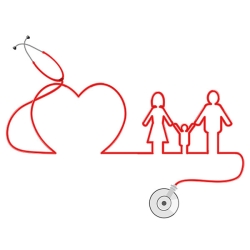 Angela Jenkins, ST6 Anaesthetics, Glasgow
Angela Jenkins, ST6 Anaesthetics, Glasgow
Thirdly, it allowed a risk assessment to be undertaken which could identify any potential workplace risks to me or the baby, which could then be modified. Such risks included exposure to ionising radiation, dizziness if I had to stand for too long, the need for regular bathroom breaks (unless I wanted to self-catheterise, of course!), difficulties transferring anaesthetised patients and particular problems covering ICU duties, such as having to run to cardiac arrests carrying a heavy bag.
A number of small modifications were then made to my clinical duties. Where possible, I could avoid theatre lists involving x-ray exposure, a stool would be provided and (most importantly), I was taken off the ICU rota. This is certainly not possible for all pregnant trainees – I was lucky that my department was able to make it work in my particular circumstances.
A helpful tip that I picked up from a colleague regarded maternity pay. I was concerned that there would be no maternity pay for the last three months as I was taking a year off. I was informed that it was possible to request that human resources will annualise maternity pay, meaning that there will continue to be some income all the way through until returning to work. This took a bit of negotiation, but was certainly possible within my health board.
“I WAS JUST TOO BIG AND TIRED IN MY THIRD TRIMESTER TO CONTINUE TO WORK EFFECTIVELY IN THE THEATRE ENVIRONMENT.”
Finally, I had to consider my options with regard to returning to work. The decision as to whether to return on a full-time or flexible basis is very individual and can be difficult. I had to balance the desire to finish my training expeditiously with the desire to spend as much time as possible with my baby. It is also important to consider financial aspects of part time training and childcare, along with the impact flexible training may have on the ability to stay engaged with departmental activities. After much deliberation, I made the decision to go back to work on a full-time basis.
The best advice I can offer to pregnant junior doctors is to think through your options, talk to people who have been through a similar experience and to keep your line manager and all other necessary parties up to date.
REFERENCES
1. General Medical Council. The state of medical education and practice in the UK: 2011. www.gmc-uk.org/publications/10692.asp
3. Topley R, Ashwell G, Webb J, Brightwell A, Roden R, Corrado O.J. Trainees’ tales of less than full time training” BMJ Careers. 22 Aug 2012. http://careers.bmj.com/careers/advice/view-article.html?id=20008522
4. Khan M. Medicine—a woman’s world? BMJ Careers. 5 Jan 2012. http://careers.bmj.com/careers/advice/view-article.html?id=20006082



































